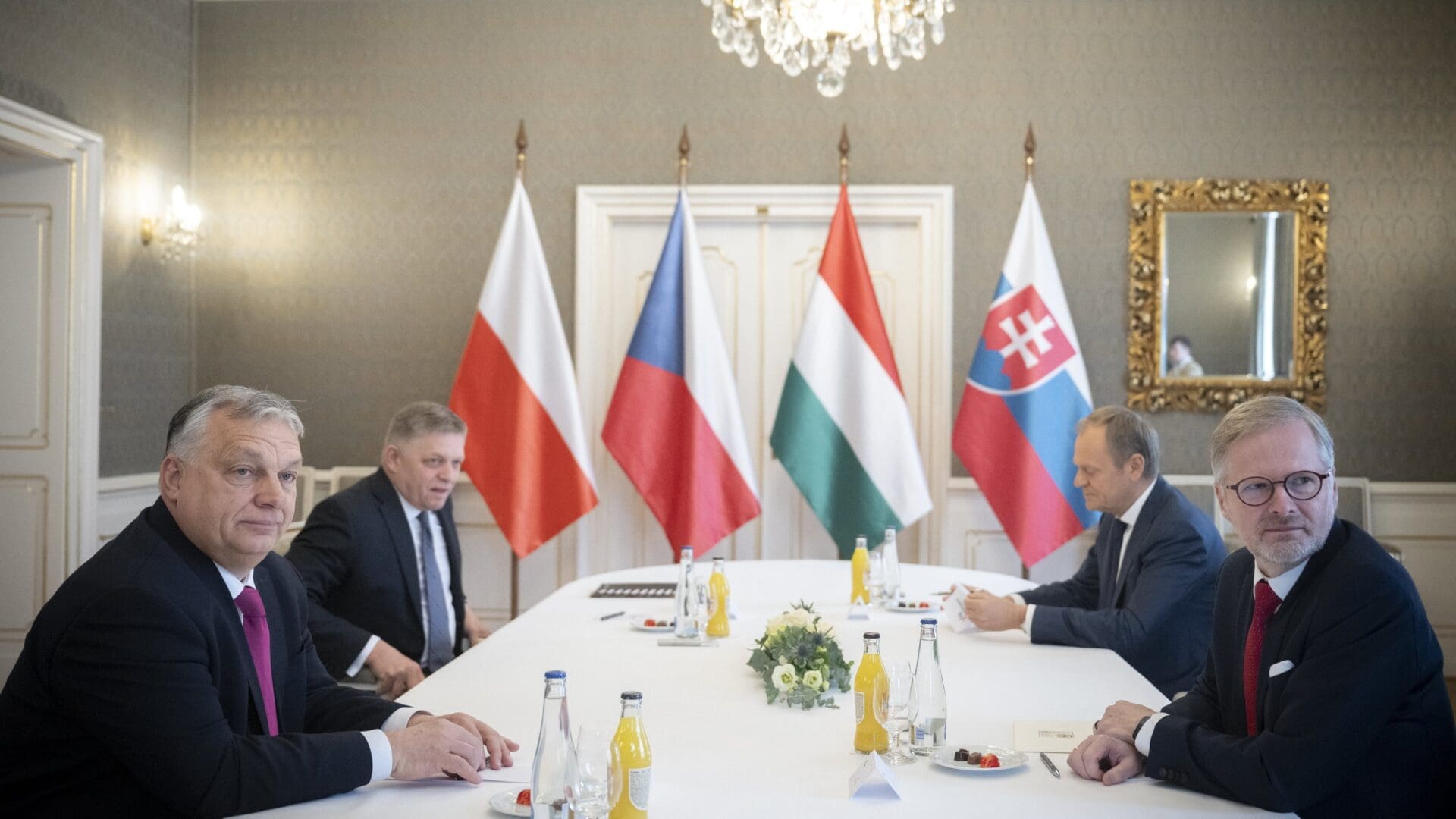‘Today’s meeting convinced me that Visegrád is alive and important. We can acknowledge our differences with due respect, even if we dispute each other’s positions. Nevertheless, we will continue to strengthen cooperation on common issues. Hungary is ready to do so,’ Viktor Orbán stated in Prague on Tuesday, following the summit of the Visegrád Group (V4) prime ministers. The V4’s top-level talks have reconvened after more than six months, marking the first summit in eight years at which Poland was represented by Donald Tusk rather than Mateusz Morawiecki.
According to the Hungarian Prime Minister, this meeting posed considerable challenges,
as it centred around the fundamental question of the V4 format’s viability.
He recalled a previous self-assessment gathering following the accession of the Visegrád countries to the EU. During that juncture, the V4 committed to sustaining collaborative efforts in the pursuit of common interests.
The status quo remained unchanged until the outbreak of the war in Ukraine, a development that overshadowed all other considerations and prompted a re-evaluation of the future trajectory of cooperation, the PM said according to MTI.
Orbán Viktor on Twitter: “The #V4 is alive and well! We may disagree on how we should help #Ukraine, but there are many other fields where the V4 countries can and will cooperate: fighting #migration, standing up for our farmers and defending low taxes against Brussels. pic.twitter.com/kw7znKQ5AV / Twitter”
The #V4 is alive and well! We may disagree on how we should help #Ukraine, but there are many other fields where the V4 countries can and will cooperate: fighting #migration, standing up for our farmers and defending low taxes against Brussels. pic.twitter.com/kw7znKQ5AV
PM Orbán stated that the meeting brought to the surface both areas of agreement and disagreement among the parties. ‘We reached consensus that Russia’s attack on Ukraine constitutes a grave violation of international law, and we also concur on the necessity of providing assistance to Ukraine. It is imperative that we extend support to Ukraine; it is the morally correct course of action,’ the prime minister emphasized.
Orbán articulated that from Hungary’s perspective, there exists a distinct factor: namely, Hungary’s reluctance to re-establish a shared border with Russia due to past negative experiences. ‘One of the cornerstone principles of Hungarian national security is the maintenance of an entity to the east of our borders, serving as a buffer between Russia and Hungary. Consequently,
our support for Ukraine also aligns with Hungarian national interests,’
he asserted.
The Hungarian PM underscored that the disparity in viewpoints among the parties revolves around the methods and resources allocated to aid Ukraine. ‘Hungary’s stance is unequivocal: we will refrain from supplying weapons to Ukraine, either with or without accompanying soldiers. However, we are committed to extending all other forms of assistance,’ he stressed, highlighting humanitarian aid and the provision of refuge for Ukrainian refugees.
Orbán expressed that despite the divergence in opinions regarding the most effective ways to assist Ukrainians, there remains a collective impetus to sustain Visegrád cooperation. He cited several areas of successful partnership, such as addressing illegal migration, where the quota matter remains pertinent and warrants ongoing collaboration.
In response to a journalist’s question, the Prime Minister reiterated that Hungary’s stance on the war remains unchanged and emphasized the urgency of advocating for peace negotiations between the involved parties. He underscored that the outcome of the war would not be determined solely on the battlefield and cautioned against prematurely assigning blame to any party involved. ‘The issue of war guilt should be determined post-war,’ PM Orbán asserted.
The Prime Minister highlighted that Hungary stands apart from its Western allies by examining the war not solely through Ukrainian or Russian perspectives, but through a uniquely Hungarian lens. ‘Hungarians recognize that neither Russia nor Ukraine, supported by the West, will emerge victorious in this conflict. In this context, the paramount goal is to preserve lives and commence peace talks expeditiously. This stance represents Hungary’s position,’ he stressed. The prime minister dismissed journalists’ claims that Hungary’s policy on Ukraine had isolated it internationally.
The Czech, Polish, and Slovak prime ministers also acknowledged their differences of opinion but
voiced their support for ongoing Visegrád cooperation.
In response to a question, all four heads of government affirmed that their countries have no intentions to deploy troops to Ukraine.
Slovakian Prime Minister Robert Fico affirmed that his government would offer Ukraine all assistance except arms and ammunition. In contrast, Czech Prime Minister Petr Fiala and Polish Prime Minister Donald Tusk stated that, unlike the Hungarian and Slovak positions, they remain prepared to provide arms and ammunition to Ukraine.
Related articles:








